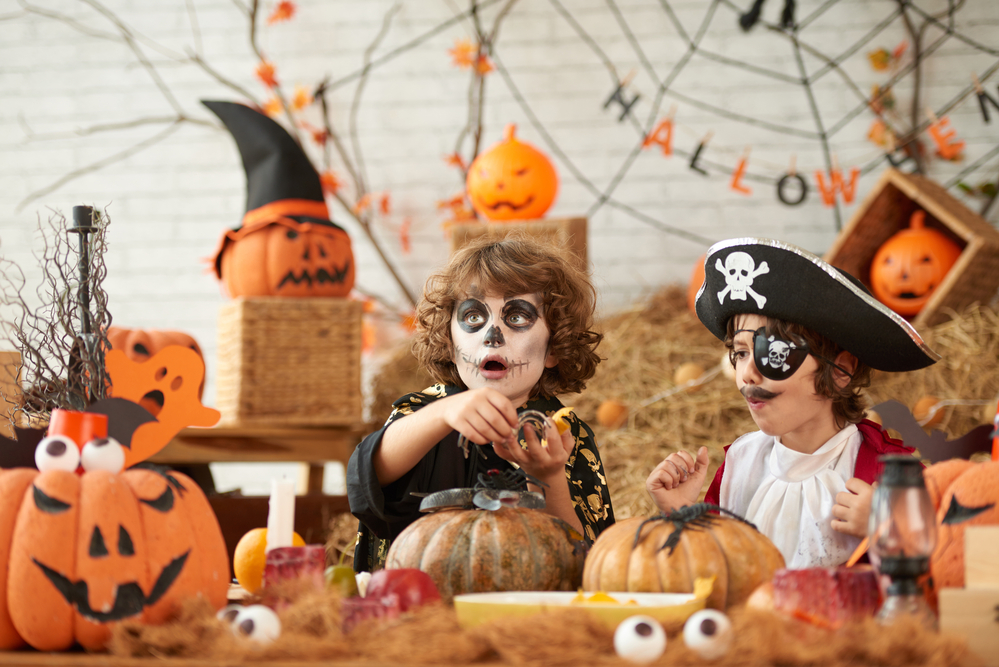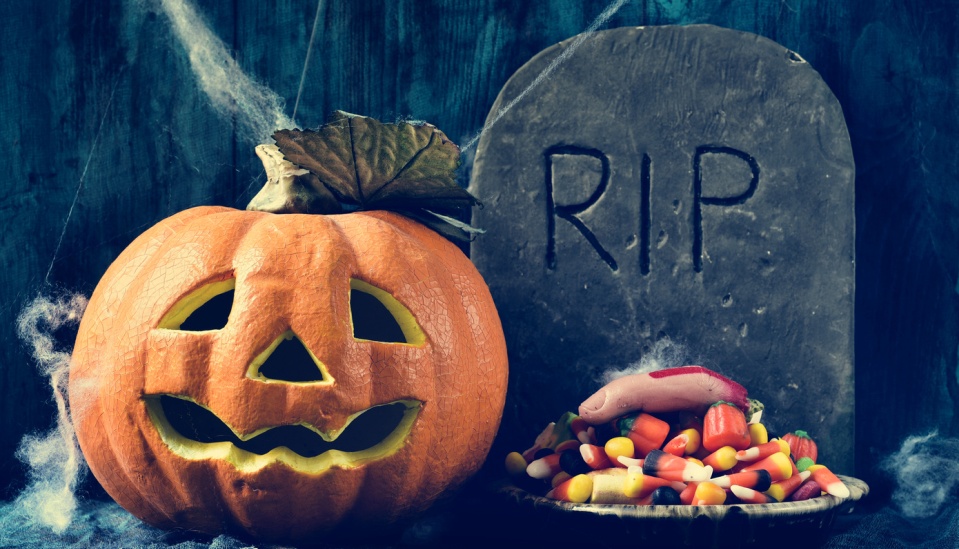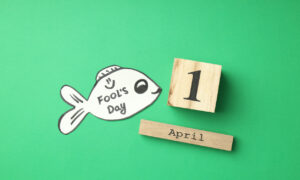Zucche intagliate, feste in maschera ed il coro dei bambini che bussano alla porta chiedendo „trick-or-treat”, che in italiano sarebbe “dolcetto o scherzetto”. Molti pensano che Halloween è una festa americana, ma in realtà ha origini celtiche. La frase “trick-or-treat” viene recitata dai bambini mascherati che girano per le case chiedendo ai padroni di casa dei dolciumi, pena uno “scherzetto”.
La parola “trick” in inglese significa più “minaccia” che “scherzetto”; infatti, i bambini minacciano di fare qualche danno, se non saranno dolcemente ricompensati.
Durante (e prima) la festa di Halloween le famiglie comprano dolciumi o li preparano in casa e aspettano che i bambini-spiritelli vengano a bussare alla porta.
La tradizione di mascherarsi e girare in cerca di ricompense è una usanza medievale, che si rifà al rito tardo medievale dell’elemosina, quando i poveri si aggiravano il giorno di Ognissanti – 1° novembre – chiedendo cibo in cambio di preghiere per i loro morti il giorno della Commemorazione dei defunti (il 2 novembre).

The History of Halloween
Halloween is a holiday in many English speaking countries that is celebrated on the night of October 31st. Children wear costumes and they go to people’s homes saying “Trick or treat!” to ask for candy and then the people give it to them. People sometimes dress up as ghosts, witches, goblins, and other scary things for Halloween.
The word Halloween is from Hallowe’en. This is a contraction of All Hallow’s Eve. All Hallow’s Eve is the day before the Catholic holiday All Saints holy day. All Saints holy day was once called All Hallows. This was short for All Hallowed Souls. Hallowed means holy.

This holiday All Saints holy day was made by Christian missionaries. It was the same day as a Pagan holiday. The missionaries came to areas where Pagans lived. They tried to make the Pagans believe in Christianity. So they made some Pagan holidays into Christian holidays.
The Pagan holiday that All Saints holy day replaced was the Day of the Dead. Many Wiccans and modern Pagans celebrate the Day of the Dead. This is a happy holiday (even though it says ‘Dead’). It is the day that the souls of dead people come back to Earth. So in Pagan religions it is not about scary things. It is about being with (remembering) family or friends who have died.
holiday – festa
to be celebrated – essere festeggiato
costume – maschera
candy – caramella
to dress up as – vestirsi in costume
ghost – fantasma
witch – strega
goblin – folletto
scary – che fa paura
contraction – restringimento, abbreviazione
holy – santo
missionary – missionario
pagan – pagano
to replace – sostituire
religion – religione

Trick or treat! – Dolcetto o scerzetto?
Rispondi le domande!
1.When is Halloween celebrated?
…………………………………………………………………………………………………………………………………..
2.What do children say in order to get sweets?
…………………………………………………………………………………………………………………………………..
3.What does the word hallowed mean?
…………………………………………………………………………………………………………………………………..
4.Where did the missionaries go and why?
…………………………………………………………………………………………………………………………………..
Answers: Halloween is celebrated on the night of October 31st./Children say „Trick or treat!” to ask for candy and then the people give it to them./Hallowed means holy. /The missionaries went to areas where Pagans lived to try to make them believe in Christianity.













